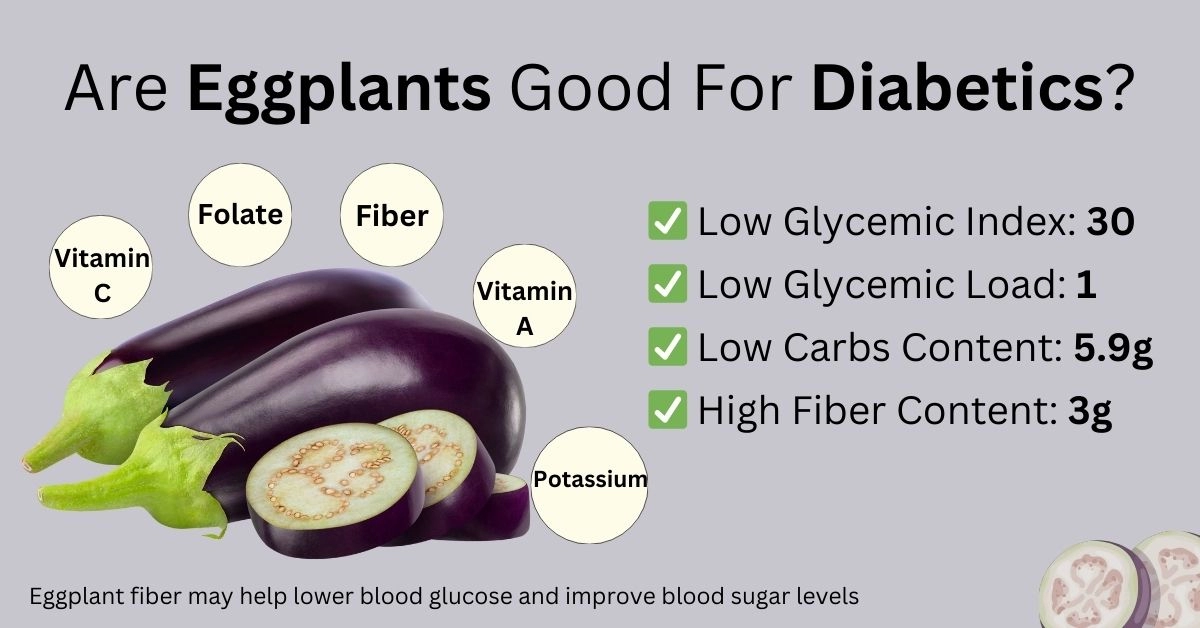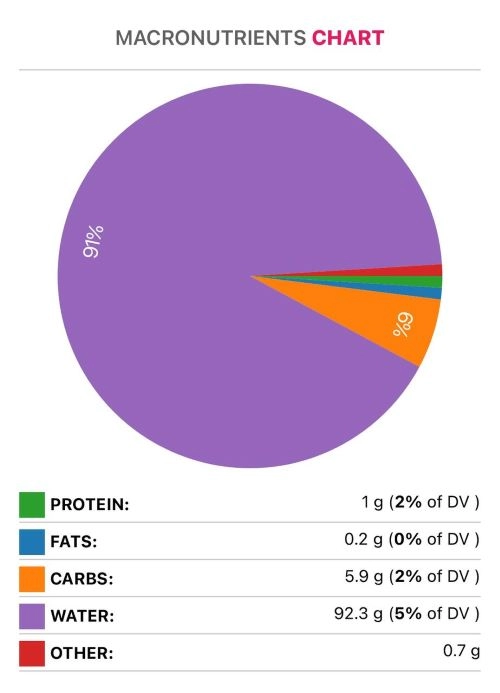Eggplants and Diabetes - Are They Good For Diabetics

Introduction
Eggplant is a tasty and healthy vegetable and a great way to get more fiber into your diet. Let's find out if eggplants are good for diabetes.
Glycemic Index and Carbohydrates
The recommended diet for type 2 diabetes is a low carbohydrate and low glycemic index diet.
Eggplants are considered low glycemic index foods. The GI of eggplant is 30. The carb content of eggplant is also low: 5.88g per 100g, of which 3g is fiber.
This means that eggplant does not affect blood sugar levels. Moreover, they can help to keep your blood sugar in check.
According to research, the fiber in eggplant may help lower blood glucose levels and improve blood sugar and insulin levels (1).
You can visit the Glycemic index chart page for glycemic index information on more than 350 foods.

Type-2 Diabetes
The American Diabetes Association and the National Diabetes Education Program of the National Institutes of Health recommend diets containing eggplant for type 2 diabetics.
Eggplant is also high in phenols, which have antioxidant properties that help people with diabetes control their blood sugar levels. According to research, phenols may regulate the body's carbohydrate metabolism. This allows insulin more time to break down the carbohydrates, which are primarily from refined foods with little fiber or vitamin content (2).
Another study shows that polyphenols can help reduce sugar absorption and increase insulin secretion, which can help lower blood sugar. Eating eggplants inhibits the enzyme that converts starch into blood sugar, making it one of the most effective foods for preventing diabetes (2).
In addition, eggplant may inhibit α-amylase activity, helping regulate postprandial hyperglycemia and lowering the risk of developing diabetes (3.4).
In summary, eggplants are a great source of fiber and polyphenols, which may help reduce blood sugar levels.
References
- https://www.sciencedirect.com/science/article/abs/pii/S0960852407005342
- https://www.ncbi.nlm.nih.gov/pmc/articles/PMC2871121/
- https://www.ncbi.nlm.nih.gov/pmc/articles/PMC8143715/
- https://bmccomplementmedtherapies.biomedcentral.com/articles/10.1186/s12906-016-1085-1#:~:text=%CE%B1%2Damylase%20and%20%CE%B1%2Dglucosidase%20digest%20the%20carbohydrates%20and%20increase,the%20risk%20of%20developing%20diabetes.
